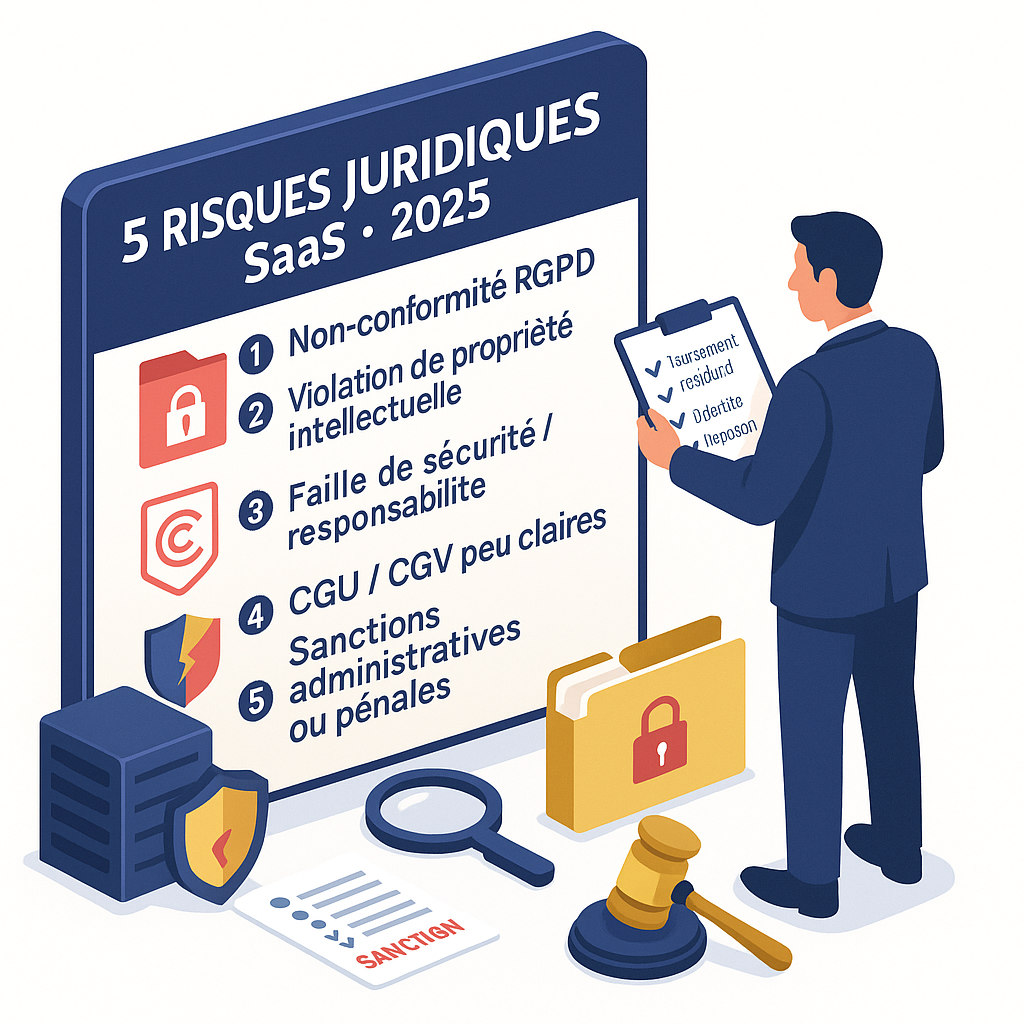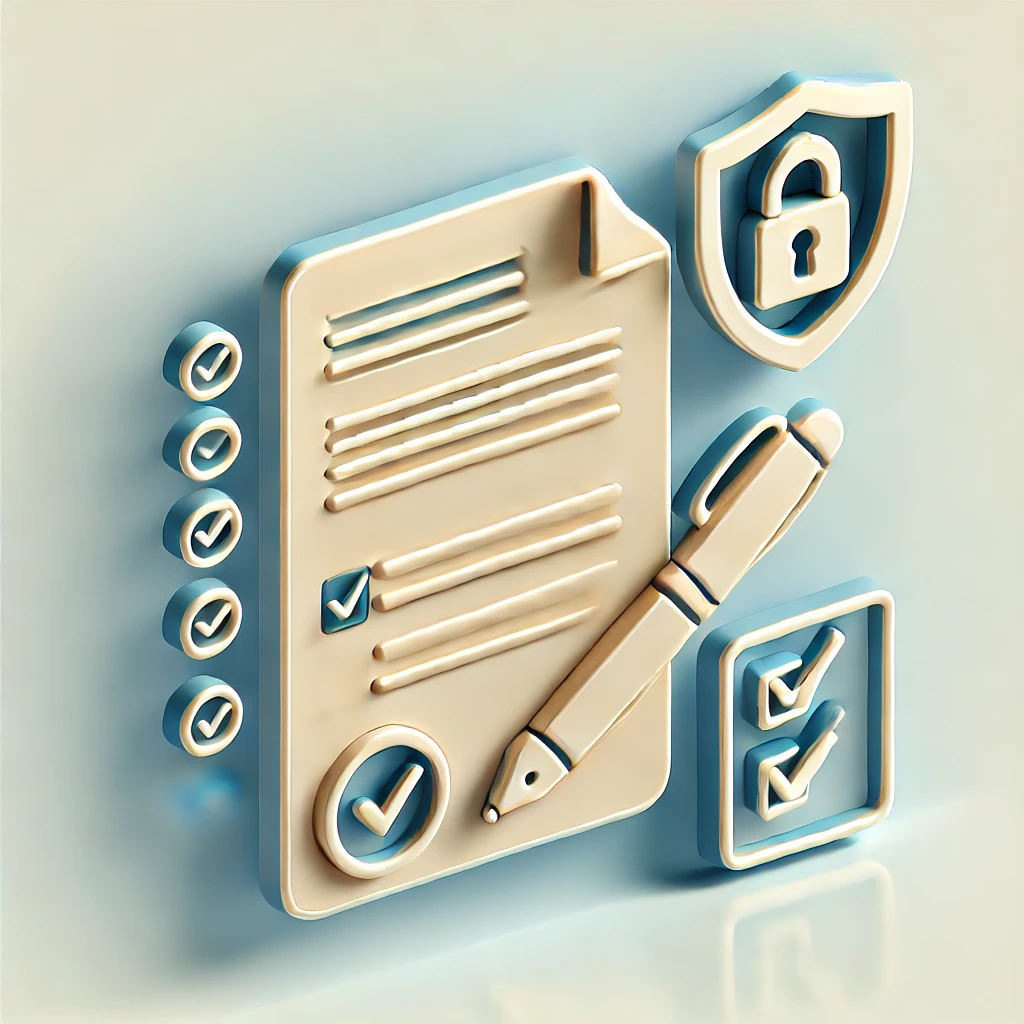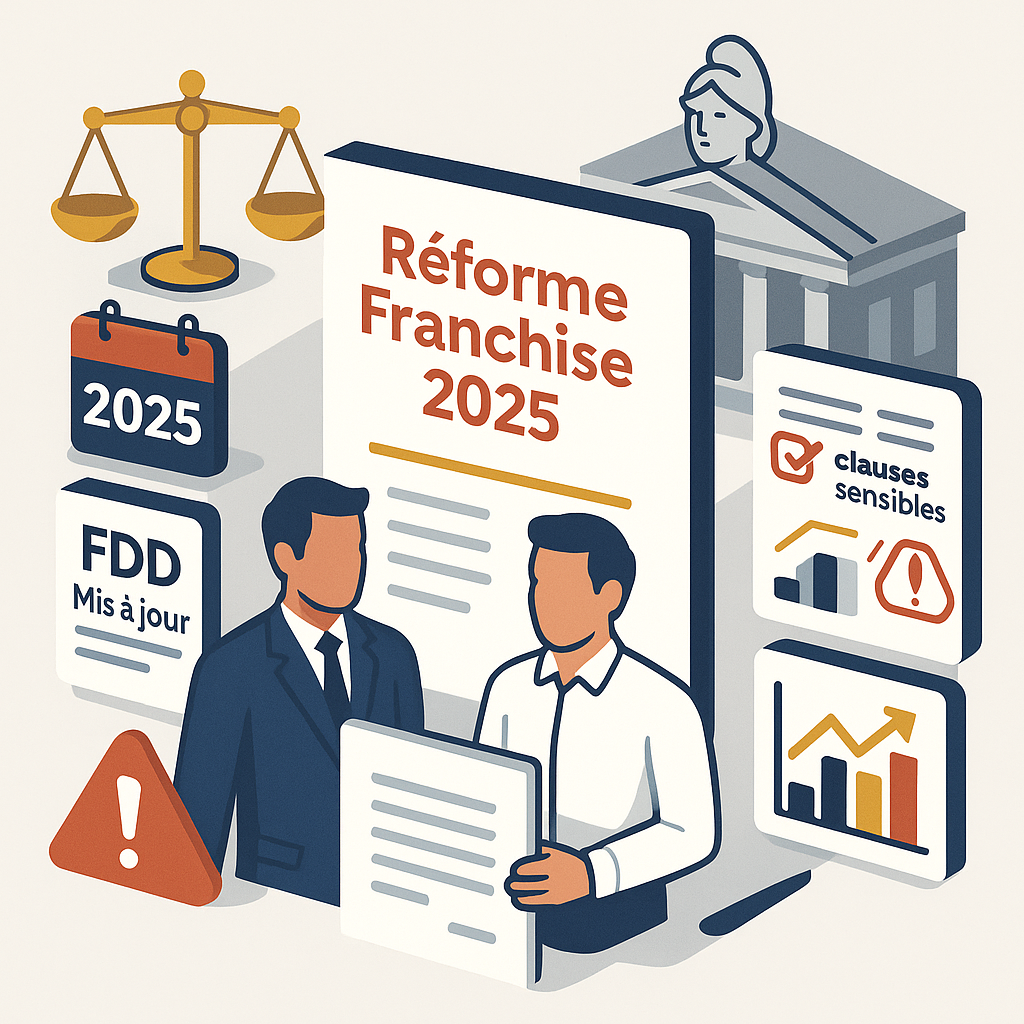In an ever-changing digital world, the SaaS (Software as a Service) model has established itself as an essential reference for software development and distribution. While this model offers flexibility and efficiency, it also exposes companies to specific legal risks that can have considerable financial and reputational consequences. Here's a look at the five main legal risks facing SaaS companies in 2025.
If you would like to use a SaaS lawyer, please contact me!
Non-compliance with RGPD and data protection regulations
The processing of personal data is at the heart of the SaaS solutions business. In 2025, data protection authorities are stepping up their checks and sanctions against companies that fail to scrupulously comply with the RGPD and other international regulations.
SaaS companies must pay particular attention to :
- Obtain explicit and informed consent from users
- Implement data portability mechanisms
- Guaranteeing the right to be forgotten and erased
- Ensure data security through appropriate technical and organizational measures
- Maintain accurate documentation of data processing
Fines can now reach up to 4% of worldwide sales or 20 million euros, not to mention the disastrous impact on a company's reputation.
Deficiencies in subscription contracts and SLAs
The relationship with customers in a SaaS model is governed by subscription contracts and SLAs (Service Level Agreements) that precisely define the publisher's commitments. In 2025, disputes concerning non-compliance with these commitments are on the increase.
The main risks include :
- Poorly defined availability and performance clauses
- Insufficiently precise support and maintenance obligations
- Technical warranties ill-suited to customers' real needs
- Imprecise incident resolution and escalation procedures
- Unbalanced liability and indemnity clauses
These contractual failures can lead to financial penalties, contract termination and costly legal action.
Intellectual property infringement and software licensing
Intellectual property is often a SaaS company's most valuable asset. In 2025, copyright, software patent and licensing disputes have become considerably more complex.
Risks to watch out for include :
- Use of open source components without respecting license conditions
- Lack of adequate protection for your own developments
- Unintentional counterfeiting of competing solutions
- Poorly managed transfers of rights with your developers and service providers
- User licenses that don't adequately protect your intellectual property
These violations can lead to costly litigation, injunctions to cease operation of your solution, or even significant damages. To avoid such situations, we recommend that you consult a saas lawyer, who can guide you in protecting your intellectual property and securing your licenses.
Breaches of cybersecurity obligations
Cybersecurity has become a critical issue for SaaS solutions, which sometimes manage sensitive data for thousands of companies. Attacks are becoming more sophisticated, and legal obligations are set to increase in 2025.
Companies must be particularly vigilant with regard to :
- Compliance with industry security standards (ISO 27001, SOC 2, etc.)
- Implementing risk-proportionate safety measures
- Data breach notification procedures
- Regular audits and penetration tests
- Training teams in good safety practices
The consequences of a security breach can be dramatic: RGPD fines, class actions by aggrieved customers, loss of market confidence and considerable remediation costs.
Non-compliance with sector-specific regulations
Beyond general regulations such as RGPD, SaaS solutions often have to comply with sector-specific requirements, particularly when addressing regulated industries.
These constraints may include :
- HIPAA standards for healthcare data
- Financial regulations such as DORA for financial services
- Certifications specific to public procurement
- Data localization requirements in certain countries
- Accessibility requirements for people with disabilities
Failure to comply with these sector-specific regulations may result in administrative sanctions,exclusion from certain markets or the impossibility of serving customers in regulated sectors.
Conclusion: the importance of specialized legal support
Faced with these major legal risks, SaaS companies can no longer afford toimprovise their legal strategy. Legal support is essential to secure your business model, protect your assets and ensure compliance with current regulations.
The expertise of a legal advisor familiar with the specifics of the SaaS model will enable you toanticipate these risks rather than suffer them, thus transforming your legal obligations into a competitive advantage. In such a complex technological and regulatory environment, prevention is always more effective and less costly than crisis management.




